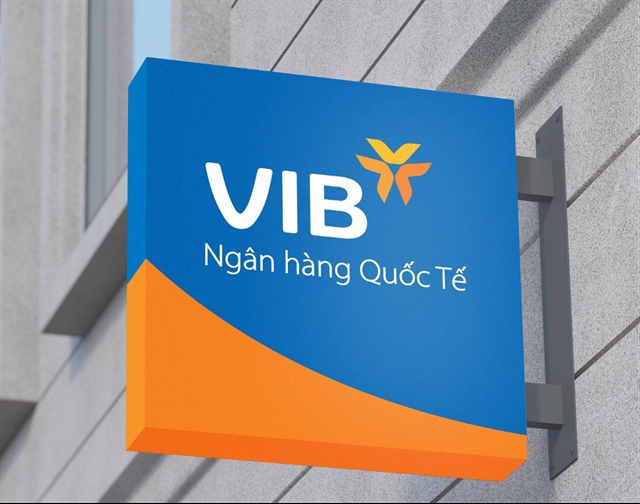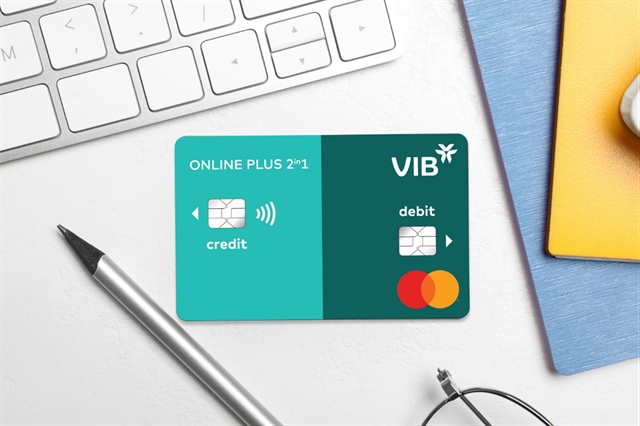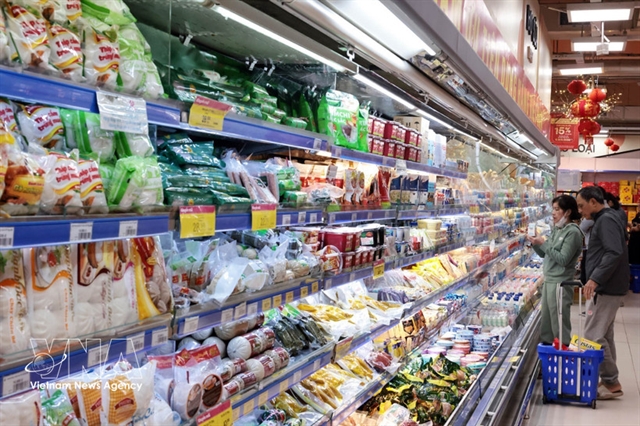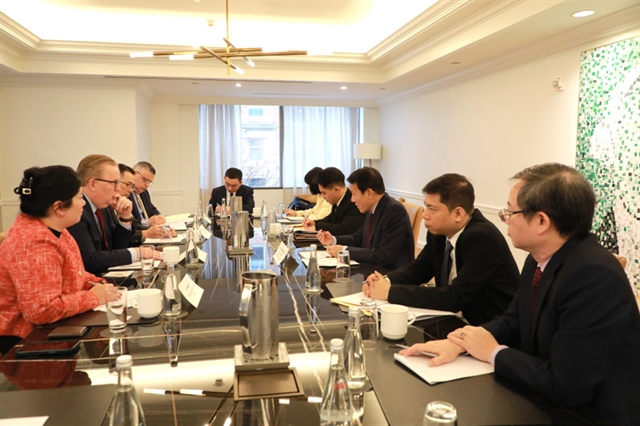 Economy
Economy


|
| A logo of VIB seen on a building in HCM City. — Photo courtesy of the bank |
HÀ NỘI — Vietnam International Bank (VIB) recorded a pre-tax profit of more than VNĐ8.7 trillion over the past ten months of 2022, up 44 per cent over the same period in 2021.
The bank's 10-month pre-tax profit was also 9 per cent higher than that of last year. Its return on equity (ROE) in the period stood at 30 per cent for three consecutive years.
The positive performance was attributable to the increase in fee income from products and services, digital banking, and capital optimisation that VIB has simultaneously implemented for five years.
At the same time, VIB has many advantages in managing bad debt ratio at a safe level thanks to the high retail loan proportion, which makes up 90 per cent of the total outstanding credit balance with over 90 per cent of loans having collateral.
Thanks to its shifting into the retail segment including credit cards, home loans, auto loans, business loans and insurance and promoting digitalisation, VIB's leaders forecast that the company's pre-tax and after-tax profits in the whole of 2022 will likely exceed the plan assigned by the General Meeting of Shareholders of VNĐ10.5 trillion and VNĐ8.4 trillion, respectively.
These figures could be even higher if VIB took into account the extraordinary profits from some cooperation agreements that the bank would likely complete in 2022.

|
| Thanks to the key strategy of shifting to retail and accelerating digitalisation, VIB has maintained a high and sustainable growth momentum for many consecutive years. — Photo courtesy of the bank |
With this forecast and its efforts on ensuring high safety ratios in business activities, VIB could likely pay a cash dividend of up to 35 per cent of charter capital by the end of fiscal year 2022. That means that each shareholder who owns one share can receive VNĐ3,500 in dividend.
This 35 per cent figure could be much higher if extraordinary revenues are recorded in 2022. After paying dividends, VIB will continue to comply with the safety factors according to the rules of the State Bank of Việt Nam (SBV) and under Basel II and Basel III.
VIB also expects that its Basel II capital adequacy ratio (CAR) would stand above 10 per cent, higher than the 8 per cent regulated by the SBV.
Following the guidance of the SBV, banks including VIB did not pay cash dividends in the three years of 2020-22. Instead, VIB regularly distributed bonus shares to shareholders at the rate of 20 per cent in 2020, 40 per cent in 2021, and 35 per cent in 2022 in addition to the employee stock ownership plans and bonus shares for employees.
Previously, the bank had paid annual cash dividends to shareholders during the 2017-19 period.
According to VIB, the plan on paying cash dividends in 2023 and maintaining safety and efficiency indicators after three years affected by the COVID-19 pandemic is practical and in line with the aspirations of the majority of shareholders.
VIB leaders said that the bank would calculate the optimal dividend to submit to the General Meeting of Shareholders in early 2023, in line with the SBV policy.
If the cash dividend payment plan was approved by VIB's General Meeting of Shareholders (AGM) and the SBV, this would be the good news that shareholders were looking forward to after a long time.
In addition, VIB is the bank that always hosts the AGM soon and usually completes the dividend payment within the first six months of the year, which means that the shareholders of this bank would likely receive the dividend in the next 6-7 months.
With this expectation, the strategy of becoming a leading retail bank in Việt Nam in terms of both quality and scale that VIB has persistently pursued over the past five years seems to have really brought into play its advantages, especially in the current market situation, helping the bank maintain business efficiency and safety indicators among the highest in the country and the ASEAN region for many years. — VNS




